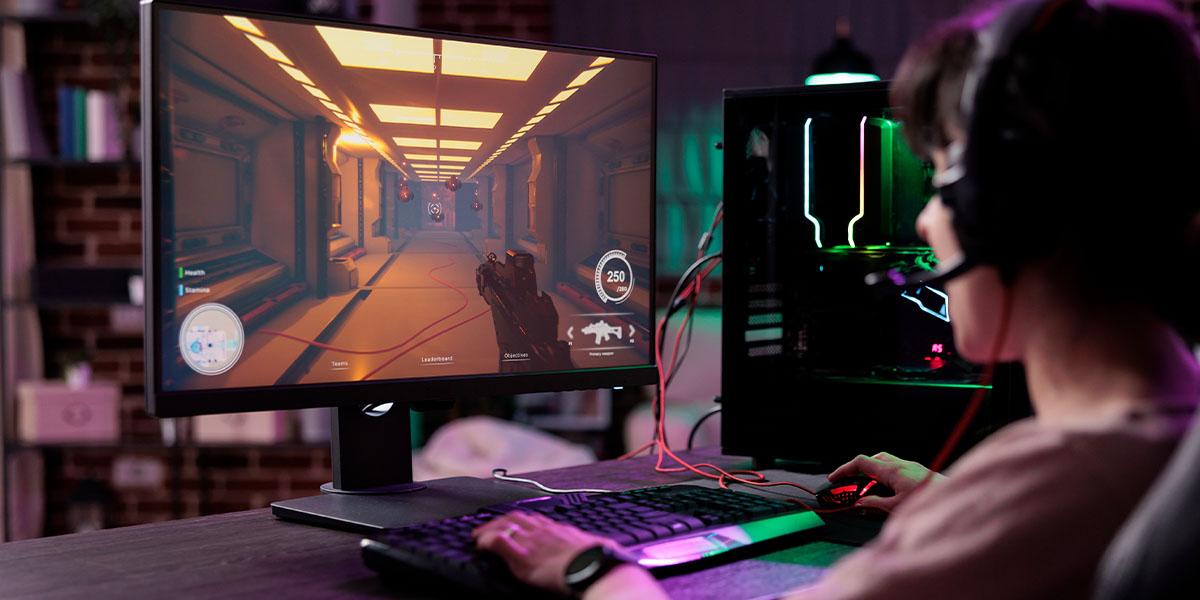However, in the middle of this engagement, we often forget to pause and ask: Are we playing safely? Are we protecting our personal information? Are we aware of the risks that come with unchecked gaming habits?
Recent incidents have shown us the darker side of unregulated online gaming. In one tragic case, a 16-year-old child lost their life after an online gaming task went too far. In another case, a young girl from Mumbai fell prey to the psychological grip of excessive gaming. These incidents are not isolated—they are alarm bells that demand immediate attention from all stakeholders: families, policymakers, game developers, and the gaming community itself.
The Missing Piece: Safety by Design
While gamers must exercise responsibility, the lack of guidance and built-in safeguards has created a dangerous gap. Digital safety in online gaming is not optional—it is essential. Studies suggest that in India, between 1.3% and 19.9% of adolescents suffer from gaming addiction, significantly higher than the global average of 1% to 3%. The mental health implications are severe, and we must not turn a blind eye.
What’s missing is Safety by Design. Many games still fail to incorporate safety features that protect users from harm. Developers must prioritize safety in the conceptualization and design phase of games. Features like time-limit prompts, warnings against oversharing personal information, and alerts about potential scams or in-game grooming should be the norm, not the exception.
Online gaming platforms are now being used as channels for grooming and, in some cases, have led to the dissemination of Child Sexual Exploitative and Abuse Material (CSEAM).
Fortunately, there are examples of active governance, such as Tamil Nadu’s efforts to regulate online gaming. However, there is a need for more dialogue and greater involvement of stakeholders to strengthen safety measures and highlight the urgency of implementing regulatory frameworks alongside awareness campaigns. Special attention must also be given to Tier 2 and Tier 3 towns in India, where online gaming is rapidly growing, but awareness and support systems remain limited.
That said, it is essential to bring stakeholders together—not just to identify challenges and concerns, but also to explore the positive aspects of gaming and how its potential can be further harnessed. Convening diverse voices will foster constructive dialogue and help promote a narrative around responsible gaming. The goal is not to call for bans, but rather to advocate for protective measures for users, especially those who engage in gaming for extended periods.
Towards a Culture of Responsible Gaming
At Social & Media Matters, in collaboration with the E-Gaming Federation, we launched a Responsible Gaming program aimed at raising awareness among college students. We believe that gaming, when approached mindfully, can foster skills, confidence, and community. It can be a positive force—but only if it is safe. To build a culture of responsible gaming, here are a few key recommendations:
For Gamers:
- Set Time Limits: Allocate specific hours for gaming to prevent overuse.
- Be Alert to Scams: Never share personal information. Be cautious with in-game purchases.
- Seek Support: If gaming starts affecting your daily life, don’t hesitate to speak to a mental health professional.
- Monitor Habits: Know which games your child is playing and for how long.
- Start Conversations: Talk openly about online safety and the risks of excessive gaming.
- Use Parental Controls: Leverage tools to manage screen time and restrict inappropriate content.
- Implement Robust Age Verification: Ensure that age-appropriate content is accessible only to the intended audience.
- Build in Prompts and Warnings: Integrate reminders that encourage users to take breaks and play responsibly.
- Engage with Experts: Collaborate with mental health professionals to design safer, more empathetic gaming environments.

